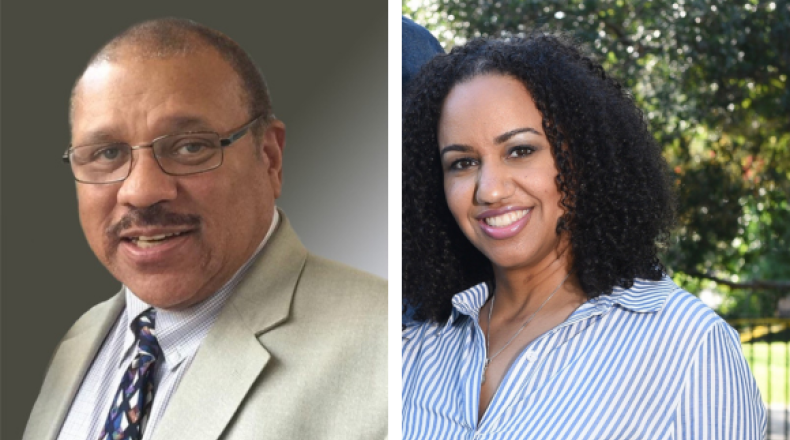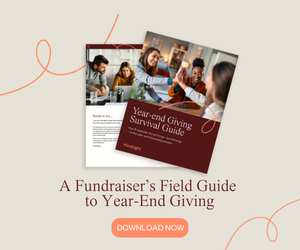Mike's Monday Message Takeover: Our Fundraising Journeys

In anticipation of the AFP African American/Black Affinity Group Session slated for June 24, 2024, we are pleased to be given the opportunity to share some thoughts on our prospective journeys as Black professionals in fundraising in this Mike’s Message Takeover. While we have been asked to share some of our experiences, we recognize: (1) The narrative is quite broad, and it would be impossible to highlight all of the issues that help or thwart our ability to perform our jobs as Black fundraisers satisfactorily; (2) Whether a senior or a newcomer to the fundraising profession, there are recurring systemic issues we face or will face as Black practitioners; and (3) The AFP African American/Black Affinity Group Session allows us to explore, discuss, and network with our peers as we try to deal with some of these challenges effectively head-on.
Seeking diversity in the fundraising profession is a relatively recent phenomenon. In 1984, there were approximately 3,500 members in the National Society of Fund Raising Executives (NSFRE). This was one of several name changes that occurred as the organization grew into the present-day AFP Global. Less than 100 Black members were in the organization. Ninety-five percent of these Black AFP members were Certified Fundraising Executives (CFRE).
There were no organizations that represented the interests of professional fundraisers in the performance of his or her duties until 1960 when three founding members established the first fundraising association in New York City. One of the three founding members was Black. William R. Simms was the executive director of the Urban League in New York City. This brief history is important because it underscored the longstanding need for Black professionals and nonprofit organizations to benefit from the collective experiences of our peers in the same ways as white professionals and white organizations. The journey for inclusion, support, recognition, and advancement has not always been easy.
“As a senior fundraiser, I remember the first time I heard the term micro-aggression. It was not a term used in the everyday parlance among my sphere of older Black professionals. In fact, the individuals using the term were some of the brightest, energetic, productive young individuals that I ever had the occasion to meet. I was reminded in this one instance that many of the issues I dealt with many years ago were similar, if not the same, issues that were being dealt with today. The reality is that regardless of tenure, we ALL must learn new ideas and approaches to remain relevant in order to deal with systemic bias,” Brown recalls. “As a mid-level professional, having been in development for 12 years, my greatest challenge as a Black professional is the lack of opportunities to advance my career in areas traditionally held by majority peers. This frequently results in a glass ceiling for talented Black fundraising professionals," says Nieves.
What are some examples of these systemic biases? We have identified several issues we have dealt with over the course of our careers. We feel many of the challenges are still relevant today.
- Being the only Black fundraising professional in a majority organization.
- Being the only Black fundraising professional in a Black nonprofit organization.
- Being the only Black fundraising professional in an organization where credentials and sometimes performance are questioned or undermined.
- Being unequally compensated.
- Being invited to apply for various jobs to satisfy potential employer hiring prerequisites, but not being hired.
- Receiving additional responsibilities because of the quality of the work.
- Receiving disproportionate responsibilities not assigned to non-Black colleagues
- Having to deal with micro-aggressions
These are recurring issues we believe all Black professionals will deal with at some point in their careers. We have identified three areas that will serve the Black fundraising professional well during her or his career. We are pleased to share them with you for your consideration:
Know Thyself!
Whether a newcomer or senior fundraiser, it is essential to assess your skill deficits. Know what you don’t know… and then, learn it! Peruse job postings to see what skill sets are required and preferred. Today’s successful practitioner must be able to communicate effectively, have interpersonal skills and the ability to build productive relationships, have demonstrated strategic thinking ability, and be highly motivated and assertive. These are basic proficiencies required. The challenge comes with matching your temperament and leadership style with the type of fundraising opportunity or organization you wish to secure. Know what your greatest competencies are!
Know the Marketplace!
There are indeed differences between raising money for organizations within the nonprofit sector — e.g., arts, social or community services, education, health, and religion. One path does not abnegate working in or for another, but it is always a good idea to examine the culture within these nonprofit categories to determine if your values and interests are aligned. You can be gainfully and gleefully employed, but after two years on a job, you should begin to assess whether there exists an opportunity for professional growth within your organization. If not, begin to investigate other opportunities within the sector. Knowing when, where, and how to leave an existing job has not always been easy. However, one’s ability to assess when it is time to leave a job in one’s career increases when one is aware of other opportunities in the marketplace.
Chart Your Path!
The average stint for today’s fundraiser in the same position is estimated to be less than three years. After some introspection and the decision that a job change is imminent, you should decide what path your job search will take. Alternatively, you may feel you need to remain in your current position to try and improve it, to help the organization reach some milestone, or to reach a professional landmark. Regardless, you will be better served if an action plan has a suggested timeline. (Finding a new job may take 6 – 14 months) If, for example, additional education or certification is required to move from a director of annual giving position to a major donor position, investigate educational offerings that might be needed to learn them —and enroll in them.
For the senior practitioner who is thinking about becoming a consultant, talk with consultants of color who have successfully partnered with or launched a consultancy. Network among your sphere of professional colleagues to determine portals for job postings, identify minority-friendly search firms and locate career coaching and mentoring for minority professionals. Ultimately, you are in the best position to control and map your career development. The dynamics are positive when you guide the process.
Our individual journeys as Black professional fundraisers have been rich and rewarding. We invite and encourage other talented Black fundraising professionals to pursue this journey if they wish to make a difference in the communities they hold dear. Lastly, let’s keep the dialogue going! Join us on June 24 at 12 p.m. ET for our AFP Affinity Group Speaker Series: The Journey & Perspectives of Two Black Fundraisers. This 1.5 hour event will allow us to dive deeper into our experiences, as well as provide an opportunity for networking and discussion.



